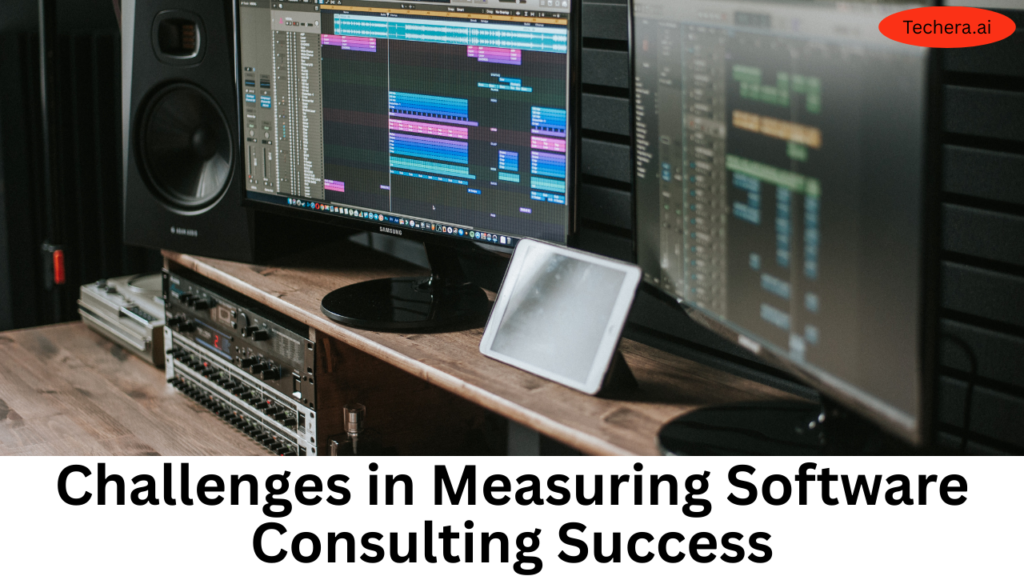
Measuring the success of a software consulting engagement is essential to ensure you achieve your business objectives. Key factors to evaluate include project outcomes, return on investment, efficiency improvements, and client satisfaction. By setting clear goals, tracking performance metrics, and gathering feedback, businesses can maximize the value of their software consulting partnerships and drive long-term success.
Introduction
Software consulting engagements can be a game-changer for businesses, helping them implement new technologies, optimize workflows, and drive digital transformation. But how do you know if the engagement was truly successful? Evaluating success goes beyond just project completion—it involves assessing tangible and intangible results, from performance improvements to client satisfaction. Let’s break down the key factors to consider when measuring the success of your software consulting engagement.
Key Performance Indicators (KPIs) for Software Consulting Success

One of the best ways to evaluate success is by looking at measurable Key Performance Indicators (KPIs). These help businesses determine if the consulting engagement met expectations.
Technical Performance Metrics
System Uptime and Performance Improvements
Did the consulting team improve system reliability and reduce downtime? Performance benchmarks should indicate noticeable gains.
Reduction in Software Bugs and Issues
A well-executed consulting project should result in fewer software glitches and a more stable application.
Efficiency in Software Deployment
Was the new software or system deployed smoothly without major setbacks? Faster and more efficient rollouts indicate success.
Business Impact Metrics
Cost Savings and ROI
A successful Software consulting engagement should lead to cost reductions, whether through process optimization, reduced maintenance, or improved efficiency.
Revenue Growth and New Business Opportunities
Did the implementation open doors to new revenue streams? Strong business impact signals a valuable engagement.
Productivity Improvements
Are employees working more efficiently thanks to the software? Reduced time spent on manual tasks is a clear success indicator.
Client Satisfaction as a Measure of Success
Ultimately, client satisfaction plays a crucial role in evaluating success.
- Conduct surveys and gather feedback to measure satisfaction.
- Use Net Promoter Score (NPS) to gauge whether clients would recommend the consultant’s services.
- Look at testimonials and case studies to understand long-term impact.
Project Timelines and Milestone Achievements
Evaluating Adherence to Deadlines
Was the project delivered on time? Timely execution is a critical factor in measuring success.
Impact of Delays on Business Operations
If there were delays, did they negatively affect business operations? Understanding the consequences helps refine future engagements.
Continuous Improvement Strategies
Even if the project faced delays, were there strategies in place to mitigate setbacks? A proactive approach is always a good sign.
Quality of Deliverables
Beyond meeting deadlines, assessing the quality of deliverables is essential.
- Is the code well-documented and maintainable?
- Does the software provide a smooth user experience?
- Is the solution compliant with industry standards?
Adoption and User Engagement
Even the best software is useless if employees don’t adopt it.
- Measure how well employees are using the system.
- Assess the effectiveness of training and support.
- Track software usage rates to ensure active engagement.
Also Read : The Benefits of Custom Software Consulting Solutions
Long-Term Scalability and Maintainability
A successful software consulting project should stand the test of time.
- Can the solution scale as the business grows?
- How easy is it to maintain and upgrade?
- Does it support long-term technological advancements?
Challenges in Measuring Software Consulting Success

Evaluating success isn’t always straightforward.
- Subjective vs. objective success metrics often create discrepancies.
- Aligning expectations with outcomes requires clear communication.
- Balancing technical and business perspectives ensures a holistic evaluation.
Best Practices for Continuous Improvement
To maximize value, businesses should adopt an ongoing evaluation approach.
- Conduct regular performance reviews.
- Maintain open feedback loops between consultants and teams.
- Use an agile approach to track and measure success dynamically.
Conclusion
Evaluating the success of a software consulting engagement involves a mix of technical, business, and user-centric metrics. By using a structured evaluation process, businesses can ensure they maximize the value of their consulting investment and continuously improve future projects.
Frequently Asked Question
Q. How do I know if my software consulting project was successful?
A. Success is measured through KPIs like cost savings, improved efficiency, and user satisfaction.
Q. What are the most important KPIs for software consulting success?
A. Technical performance, business impact, user adoption, and client satisfaction are key KPIs.
Q. How can I measure ROI from a software consulting engagement?
A. Compare cost savings and revenue growth before and after implementation.
Q. What should I do if my consulting engagement doesn’t meet expectations?
A. Identify gaps, gather feedback, and consider renegotiating terms or implementing new strategies.
Q. How often should I evaluate software consulting success?
A. Regular assessments, including quarterly and post-project reviews, ensure ongoing improvements.

